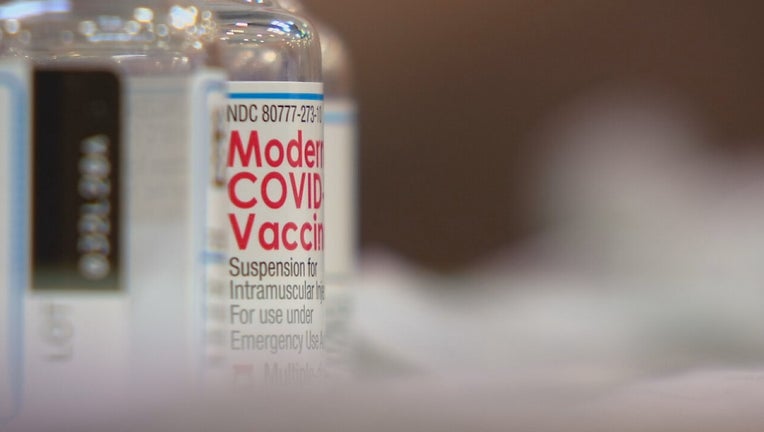Disability advocates call for clearer COVID-19 vaccine guidance for caregivers

Vials of the Moderna COVID-19 vaccine lined up on a table. (FOX 9)
(FOX 9) - Disability advocates are calling on state health officials to clarify COVID-19 vaccination guidance for live-in caregivers, who are often parents caring for children with disabilities.
Advocates say by vaccinating caregivers, they can protect the vulnerable who are yet to be eligible for the vaccine, but now those caregivers are running into issues.
It was a win for the disability community last week when Minnesota Department of Health Infectious Disease Director Kris Ehresmann confirmed that unpaid caregivers are eligible for the COVID-19 vaccine.
"We do want to clarify that parents who are serving as personal care assistants, whether paid or not, would be included in that category," said Ehresmann.
However, when those family members logged on to register, some were questioned and even turned away.
"As we’ve said to them, you’re eligible, they’ve said that’s so interesting—that’s a different answer than I got one week ago, that’s a different answer than I got when I just called XYZ county," said Sarah Curfman of Down Syndrome Association of Minnesota.
Nowhere on the state website is it clarified, and disability advocates say county health departments and pharmacies don’t have formal written guidance on the issue.
"Having things clearly explained and written down and shareable is far superior to it being verbalized in a certain webinar that you attended one day that you got lucky to see," said David Dively, the executive director of the Minnesota Council on Disability.
They fear that word-of-mouth may mean some don’t even know they’re eligible.
"I think of those families who don’t have something like the Down syndrome community which is fairly tight knit to spread the word. How do they get connected? How do they know?" said Curfman.
Some unpaid caregivers are also struggling with the vaccine navigator as it asks them to identify themselves as a "self-employed healthcare worker," which many don’t feel comfortable identifying as.

